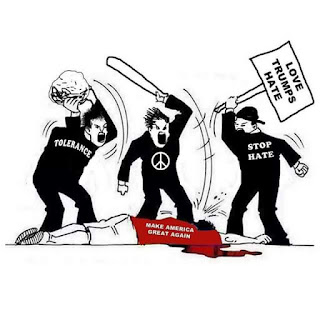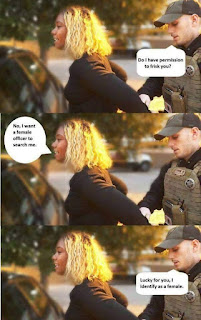written by AFP staff
Friday April 28, 2017
SAN SALVADOR: El Salvador on Thursday became the first country in the world to ban the mining of metals in what campaigners called a landmark move for environmental protection.
The law bans "prospection, exploration, exploitation, extraction or processing of metallic minerals in El Salvador," according to the text published Thursday in the official journal.
"This is more than just a novelty," the president of the Salvadoran Ecological Unit, Mauricio Sermeno, told AFP.
"It is a law that is necessary in the face of an industry which, far from bringing any benefit to communities, brings serious pollution to water sources and the environment."
When lawmakers approved the bill in March, non-government campaign group MiningWatch Canada said El Salvador had "made history, becoming the first country to ban metal mining outright."
Some Latin American countries thrive on mineral exports but local communities complain of environmental risks from toxic metals used in the process.
The new law entered into force after being signed by President Salvador Sanchez Ceren.
El Salvador says it will protect poor rural communities threatened by proposed mining projects.
The country has had disputes with powerful foreign mining firms in the past.
MiningWatch has said it hopes the Salvadoran legislation will set an example for other countries in the region.
This month it seized assets belonging to an Australian-Canadian gold mining group, OceanaGold, for legal fees the company owed after losing a lawsuit over mining permits.
In neighboring Guatemala, rural communities are challenging mining projects by Goldcorp of Canada and two US firms, Tahoe Resources and Kappes, Cassidy & Associates (KCA).
Nicaragua has rejected projects by Canadian company B2 Gold.
Central American countries such as Guatemala, El Salvador and Honduras are among the poorest in the region.
But mining accounts for a minimal portion of their economies and jobs, a recent study by various NGOs showed.
Insight Crime
Sinaloa Cartel-Linked Drug Network Dismantled in El Salvador
written by David Gagne
Tuesday February 7, 2017
Authorities in El Salvador have captured nearly two dozen members of a criminal network with ties to the Sinaloa Cartel, highlighting the importance of Central America's Northern Triangle region to the hemisphere's most powerful drug trafficking organization.
Members of El Salvador's Attorney General's Office (Fiscalía General de la República - FGR) and National Civil Police (Policía Nacional Civil - PNC) made the arrests on the night of February 5 and morning of February 6 following 14 months of investigation, the FGR announced in a statement. A total of 22 suspects were captured, including the alleged head of the network in El Salvador, José Leonidas Gómez Cuellar, alias "Pepe."
The group worked under Guatemalan national Marlon Francesco Monroy Meoño, alias "Fantasma," a high-level drug trafficker who was arrested in April 2016 and extradited to the United States in November. In addition to allegedly acting as a middleman for Colombian drug traffickers and Mexico's Sinloa Cartel, Monroy Meoño has been linked to scandals connected to current Guatemalan President Jimmy Morales and his jailed predeccessor, Otto Pérez Molina.
According to the FGR, the Salvadoran network pretended to be small-scale fishermen but were in fact carrying out a variety of tasks for drug traffickers moving through El Salvador's Pacific coast on go-fast boats. This included refueling the boats and protecting them as they reached shore, as well monitoring the location of patrol ships. Between January and June 2016, authorities confiscated some 400 kilos of cocaine connected to the group during two interdiction operations.
InSight Crime Analysis
The arrests draw attention to the crucial role that El Salvador, along with the other Northern Triangle countries of Guatemala and Honduras, play in sustaining the drug trafficking operations of Mexican organized crime. According to a 2012 report by the United Nations Office on Drugs and Crime (UNODC), Mexican cartels have moved 90 percent of their cocaine trafficking operations to Central America.
The Sinaloa Cartel in particular, widely considered the most powerful in the Western Hemisphere, has deep roots and extensive contacts in the region. In January 2015, the US Treasury Department designated as a "kingpin" the cartel's former leader in Central America, Cesar Gastelum Serrano, who US officials believe was influential enough to negotiate directly with top Sinaloa bosses. And it was in Guatemala that legendary Sinaloa drug lord Joaquín "El Chapo" Guzmán was arrested for the first time, back in 1993.
Insight Crime
Sinaloa Cartel-Linked Drug Network Dismantled in El Salvador
written by David Gagne
Tuesday February 7, 2017
Authorities in El Salvador have captured nearly two dozen members of a criminal network with ties to the Sinaloa Cartel, highlighting the importance of Central America's Northern Triangle region to the hemisphere's most powerful drug trafficking organization.
Members of El Salvador's Attorney General's Office (Fiscalía General de la República - FGR) and National Civil Police (Policía Nacional Civil - PNC) made the arrests on the night of February 5 and morning of February 6 following 14 months of investigation, the FGR announced in a statement. A total of 22 suspects were captured, including the alleged head of the network in El Salvador, José Leonidas Gómez Cuellar, alias "Pepe."
The group worked under Guatemalan national Marlon Francesco Monroy Meoño, alias "Fantasma," a high-level drug trafficker who was arrested in April 2016 and extradited to the United States in November. In addition to allegedly acting as a middleman for Colombian drug traffickers and Mexico's Sinloa Cartel, Monroy Meoño has been linked to scandals connected to current Guatemalan President Jimmy Morales and his jailed predeccessor, Otto Pérez Molina.
According to the FGR, the Salvadoran network pretended to be small-scale fishermen but were in fact carrying out a variety of tasks for drug traffickers moving through El Salvador's Pacific coast on go-fast boats. This included refueling the boats and protecting them as they reached shore, as well monitoring the location of patrol ships. Between January and June 2016, authorities confiscated some 400 kilos of cocaine connected to the group during two interdiction operations.
InSight Crime Analysis
The arrests draw attention to the crucial role that El Salvador, along with the other Northern Triangle countries of Guatemala and Honduras, play in sustaining the drug trafficking operations of Mexican organized crime. According to a 2012 report by the United Nations Office on Drugs and Crime (UNODC), Mexican cartels have moved 90 percent of their cocaine trafficking operations to Central America.
The Sinaloa Cartel in particular, widely considered the most powerful in the Western Hemisphere, has deep roots and extensive contacts in the region. In January 2015, the US Treasury Department designated as a "kingpin" the cartel's former leader in Central America, Cesar Gastelum Serrano, who US officials believe was influential enough to negotiate directly with top Sinaloa bosses. And it was in Guatemala that legendary Sinaloa drug lord Joaquín "El Chapo" Guzmán was arrested for the first time, back in 1993.
Tensions Rise over Dissident MS13 Faction in El Salvador [4/28/17] https://t.co/JMMhd7a1ya via @insightcrime— GlobalAwareness101 (@Mononoke__Hime) April 28, 2017
Insight Crime
written by Leonardo Goi
Friday April 28, 2017
A breakaway faction of El Salvador's MS13 gang has reportedly been the source of increasing conflict, underlining how gang rivalries and violence can contribute to cycles of retaliation.
Authorities in El Salvador said the high command of the MS13 has instructed members to step up the fight against a splinter group known as MS503, also known as the "revolucionarios," reported El Diario de Hoy.
The MS503 reportedly broke away from the MS13 after some gang leaders allegedly received money during negotiations with former President Mauricio Funes’s government, but chose not to share the perks with the rest of the group.
In January 2016, a leader of the dissident group, Walter Antonio Carrillo Alfaro, alias "El Chory," was killed in the prison of Izalco, allegedly on orders from the MS13 high command.
But the conflict did not stop with his death, and violence within the gang seems to have recently intensified both inside and outside El Salvador's penitentiaries.
On March 24, a grenade exploded in the Ciudad Barrios prison, injuring three MS13 members, including Wilfredo Tejada Erazo, an alleged MS503 leader, according to another report by El Diario de Hoy.
According to the agency that oversees the country's prisons, the order to target the MS503 also applies to the dissidents' families -- a policy that breaks with a longstanding tradition that barred gang members from targeting family members as retaliation. Over the past five weeks, the assassinations of women and elderly people allegedly linked to the MS503 have reportedly increased.
The dissident MS503 is largely comprised of two "programs," which are clusters of gang cells known as "clicas." Authorities believe the two programs, the Fulton and the Normandis, control part of the departments of Chalatenango, Ahuachapán, Sonsonate and San Miguel.
InSight Crime Analysis
The MS13's internal divisions could lead to increasing violence in El Salvador, particularly as the traditional ban on targeting family members appears to have been revoked. Murder rates in El Salvador have reportedly decreased in 2017, a continuation of a trend that began last year. Authorities have attributed the decline to the extraordinary measures enacted against the country's gangs, but this explanation has been subject to debate, as the gangs themselves have taken credit for the reduction in murders after publicly ordering their members to stop homicides at the end of March 2016. The escalation of the MS13's internal feud could lead to the reversal of that trend.
The MS13 is not the first Salvadoran gang to separate into rival groups. In 2005, the Barrio 18, fractured into two factions, the Sureños and the Revolucionarios. It is possible that the current split within the MS13 might similarly result in the formation of two separate groups evolving in different ways.







































No comments:
Post a Comment